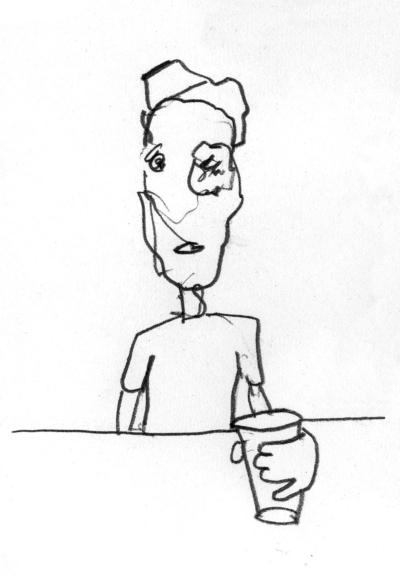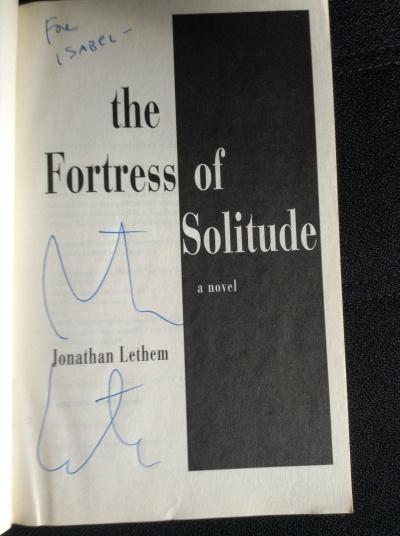Apologies to anyone wanting to read a serious article about author events. This isn’t one.
But it is a historic event, or if you want to get all literary, an historic event. It was supposed to be a guest author post but that went wrong from the start when South London New Zealander Paul Ewen, the latest exciting find from Galley Beggars, declined my invitation (I know, what a cheek! It doesn’t happen often). But his alter ego and ‘hero’ of new comic novel Francis Plug – How to be a Public Author elbowed his way onto the Sofa instead and I foolishly agreed that we’d write the piece together. This is a first.
Francis is himself an author, and one with unique insights into the pressures facing the modern writer. It used to be enough to write a good book, but not any more. As he says, authors must now be visible, marketable, accessible. They should be fair of face and sparkling of tooth and intellect, willing to tweet photos of their breakfast and to share both their inspiration and the doubts that gnaw at their soul daily. They must have the charm and diplomacy to respond to questions about where their ideas come from and whether their work is autobiographical a million times without committing violence and frequently without pay.
Like me and many others, Francis Plug is a seasoned attendee of author events at a time when they are springing up everywhere – at this rate my street will soon have its own Literary Festival. In his quest to produce the definitive guide to shining on such occasions, Francis relates his encounters with Booker Prize winners. I’m sure none of them will ever forget the experience:

Author events are somewhat different, however. They tend to lack the same drama and excitement that comes when a van drives through the side of a house, for instance. And when you happen to be the author in question, the focus of the event, you already know all about yourself and your work, and you’re hardly going to find good writing material in a book you yourself have written.
Despite this, author events can still generate certain sensations in the author. Feelings of dread, anxiety, or perhaps loathing. It would be wrong to suggest that all authors are timid, meek, social wipe-outs. Paranoid, desperate and unhinged. But some of us are. And even those who are not still display a keen fondness for spending large swathes of their time alone, cast away from the rest of society like hairy, unwashed urchins. You simply can’t write a book, particularly a novel-length book, set in a fictitious world, by engaging in normal, social interaction. Your role requires you to withdraw from society, to live instead in a world of your own making, conversing with characters you’ve invented who don’t really exist. Understandably therefore, the thought of suddenly engaging with a large number of actual genuine people in a very publicised way can cause some authors to freak out. Particularly the inexperienced debut author, who may have naively imagined their ‘bookishness’ would set them in good stead for their subsequent writing career.
As a bookish fellow myself, I’ve always relied on alcohol as a means to transition between my writing and the more difficult world containing people. Alcohol, I’ve found, makes a handy bridge between fiction and reality, combining useful elements of each. In my expert opinion, alcohol is essential to the modern public author, but it is only one factor in the armory. To correlate the others, I have spent many years studying and researching the techniques of Booker Prize-winners, the pro’s of the circuit. My new book, How To Be A Public Author, is a culmination of this. It is based on the actual author events of over 30 different Booker-winners, my encounters with the authors themselves at signings, and some rigorous note taking.
However, even Booker-winners, with their smart dress, clear, well-spoken speech, and basic intelligence, still haven’t quite cracked the successful author event. What’s needed, in my opinion, is a move towards the events I spoke of earlier. While it may not always be possible to involve fire personnel in literary gatherings, or to have a van drive through the side of an auditorium venue, this is more the direction that’s needed, I think, to sustain the keen interest of the authors themselves in these otherwise dry, factual proceedings.”
Thank you to Francis, for this astounding contribution – organisers, take note! I would normally review the book in around 150 words at this point but I’ve decided six will do:
Hilarious – excruciating – hysterical* – bizarre – worrying – nauseating** – ***
* Literally literally (as in, not figuratively). Do not read in public unless you are trying to get a Tube carriage to yourself.
** This relates primarily to the excessive consumption of alcohol. If you are a famous author looking to offload the bottles of plonk you’ve been ‘given’ for doing an event, Francis is your man.
*** I would say ‘brilliant’ but not sure we should be encouraging him.
Reading How to be a Public Author made me reflect on why I attend author events and what I get out of it. Abandoning all intentions to write anything sensible, I’ll finish with my own most memorable brushes with famous authors, none of which involve any of the above, strangely:

James Salter, aged 82, who held an auditorium rapt with his reading of the precise scene I thought he would. Gulp.
Most swoon-inducing:
Joel Dicker. Forget the book, I think everyone in the audience was in love with him, including the men.
Most awe-inspiring:
Marilynne Robinson. A sobering moment, realising I was the least spiritual person in a room of hundreds.
Most intriguing:
Jonathan Lethem. The only author whose signature has prompted a heated late night Twitter debate on whether it depicts a horse or a donkey.
Most tactile/surprising:
Christos Tsiolkas. From his books, I wasn’t expecting smiles a mile wide and bear hugs. But when I met him twice in one week, that’s what I got.
Most frank:
It’s a tie between Lionel Shriver and Val McDermid, two hugely successful authors who could easily gloss over the difficulties they’ve faced in their careers and those which new writers are facing now. I’m so grateful they didn’t.
Whether you’re an author or a reader, I’d love to hear your take on author events. Who would you nominate in these categories (or make up your own)?
Francis Plug portrait courtesy of David Le Fleming, with thanks.

